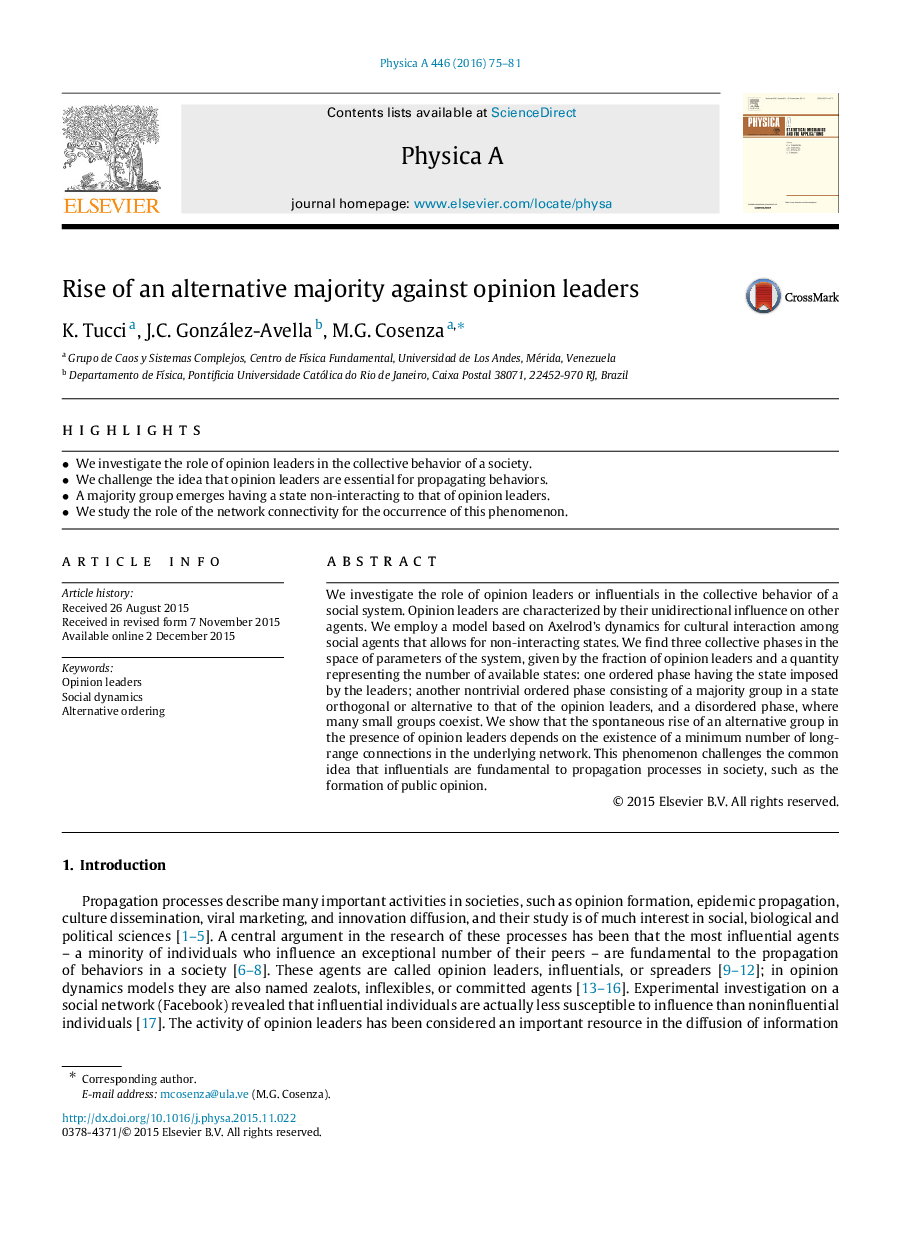| Article ID | Journal | Published Year | Pages | File Type |
|---|---|---|---|---|
| 973750 | Physica A: Statistical Mechanics and its Applications | 2016 | 7 Pages |
•We investigate the role of opinion leaders in the collective behavior of a society.•We challenge the idea that opinion leaders are essential for propagating behaviors.•A majority group emerges having a state non-interacting to that of opinion leaders.•We study the role of the network connectivity for the occurrence of this phenomenon.
We investigate the role of opinion leaders or influentials in the collective behavior of a social system. Opinion leaders are characterized by their unidirectional influence on other agents. We employ a model based on Axelrod’s dynamics for cultural interaction among social agents that allows for non-interacting states. We find three collective phases in the space of parameters of the system, given by the fraction of opinion leaders and a quantity representing the number of available states: one ordered phase having the state imposed by the leaders; another nontrivial ordered phase consisting of a majority group in a state orthogonal or alternative to that of the opinion leaders, and a disordered phase, where many small groups coexist. We show that the spontaneous rise of an alternative group in the presence of opinion leaders depends on the existence of a minimum number of long-range connections in the underlying network. This phenomenon challenges the common idea that influentials are fundamental to propagation processes in society, such as the formation of public opinion.
